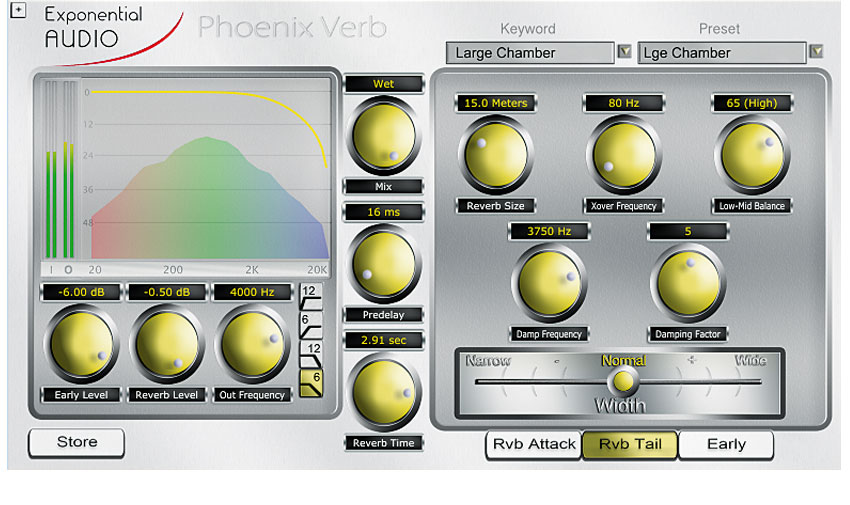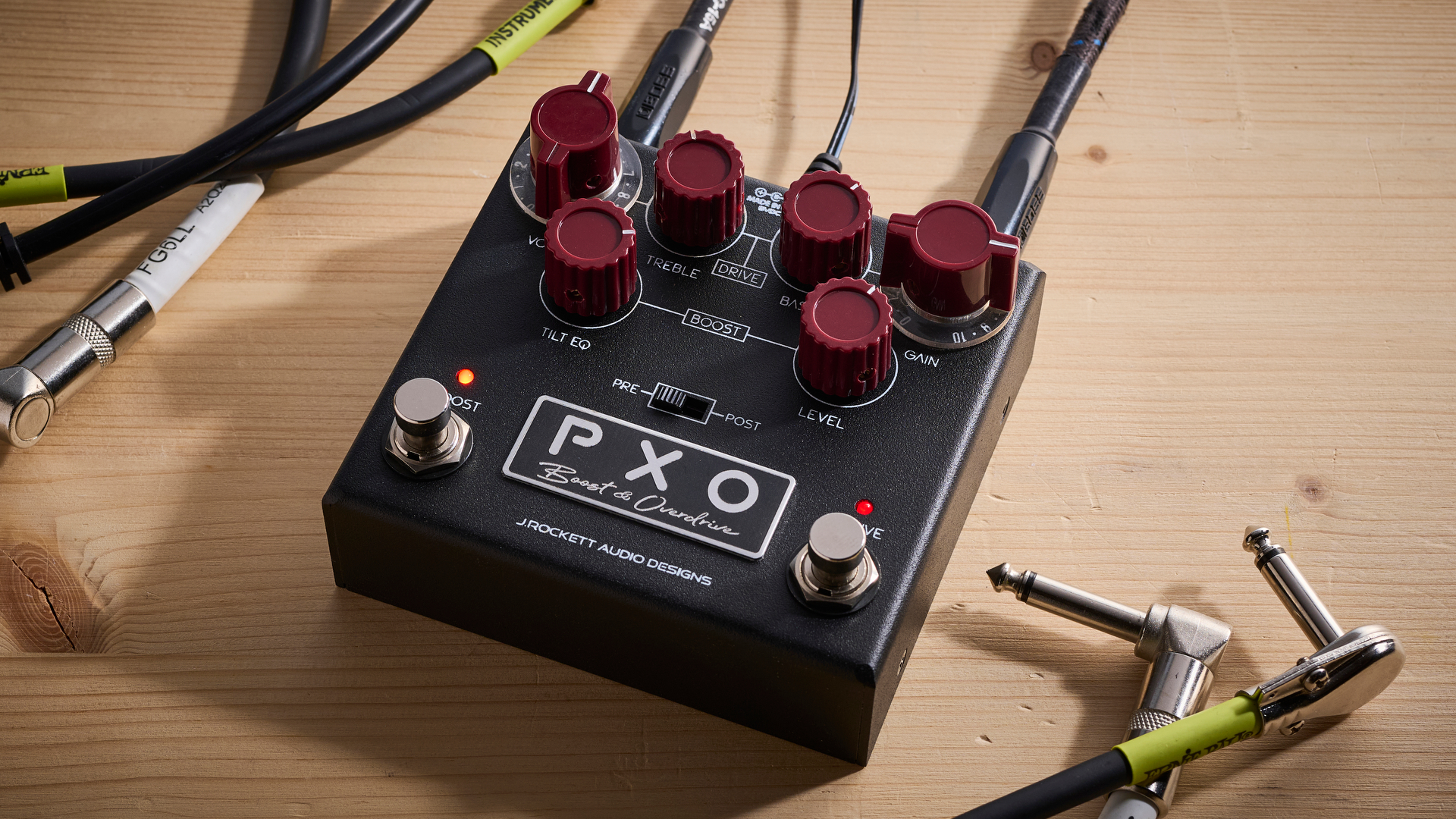MusicRadar Verdict
Exponential Audio is clearly in it for the long hall (ahem), barrelling out of the gates with this refined debut.
Pros
- +
Very transparent. Essential controls readily to hand. Keyword-based presets.
Cons
- -
Basic interface.
MusicRadar's got your back
Phoenix Verb is one of two debut plugins from new company Exponential Audio. Company founder Michael Carnes is the DSP wiz behind the Lexicon PCM Native Bundle and various other high-end Lexicon reverbs. So, although it seems to have appeared out of nowhere, this plugin has to be taken very seriously indeed.
Phoenix Verb is aimed at generating clean, realistic-sounding spaces. The plugin comes in 32- and 64-bit versions and is compatible with AU/VST/RTAS/AAX hosts on Mac, but currently only comes in VST flavour on PC (with RTAS and AAX possibly coming in future).
Phoenix rising
Upon first firing up Phoenix Verb, the archaic-looking GUI comes as a bit of a shock. Compared to similarly priced plugins - which usually sport beautiful, visually striking interfaces - this one's a tad clunky to say the least.
Having seen Exponential Audio's 90s-style website, perhaps we shouldn't have been surprised. This admittedly minor niggle aside, Phoenix Verb is sensibly laid out and easy to get your head around; and of course, as long as the pricetag is justified by the sound, that's very much the main consideration.
"The Reverb Type slider enables quick changes between Plate, Chamber and Hall reverb types"
The left-hand side of the interface hosts a frequency amplitude display with an overlaid output filter curve visualising your current filter settings. Below this are the main level controls for the early reflections and reverb tail, and an output filter cutoff frequency control.
Phoenix Verb lets you add a low- or high-pass filter to the reverb output, with a choice of 6dB or 12dB/ octave slope for each - it's a shame you can't apply both types of filter at once, doing away with the need to fire up a separate EQ. In the centre of the GUI is the main reverb Mix control along with the essential PreDelay and Reverb Time knobs.
So, with the left and centre sections, the most essential controls are readily to hand. Should you wish to delve a bit deeper, the panel to the right is where full-on tweaking begins, its three tabs hosting a wide range of further parameters.
Particularly noteworthy is the Rvb Attack section's Reverb Type slider, which enables quick changes between Plate, Chamber and Hall reverb types without a full change of preset. Also, the Rvb Tail section features a Width control that can be used to narrow the stereo field or blow it up to super-wide proportions.
Starting with some of the stock presets and putting Phoenix Verb through it's paces, we were taken aback by how transparent and natural it sounds. Neutral, clear, airy 'verbs are the order of the day, the early reflections and tails sitting perfectly in the mix. Phoenix Verb really shines in delicate, quiet situations where you might expect to detect some graininess. Naming no names, it knocked the reverb we were using for comparison for six.
Word up
Phoenix Verb uses a keyword-based preset system: you begin by choosing a keyword such as 'large', 'small plate' or 'drums', which loads up all of the presets relating to that word. Should you prefer, though, you can dispense with the keywords and simply view all the available presets in one long list.
"Phoenix Verb is possibly the cleanest reverb we've ever heard"
Assigning keywords to your own presets is a doddle, too. The Compare button lets you A/B compare whatever edits you've made to the original settings of the current preset, while the useful Reload function recalls the original preset, should you find that you've wandered off in the wrong direction with your changes.
Phoenix Verb is a well-thought-out reverb. Along with solid presets, all crucial controls are within easy reach, and detailed fine-tuning is available should you wish to get more involved.
It's possibly the cleanest reverb we've ever heard and thus absolutely qualifies as well-priced. It handles those often hard-to-pull-off small spaces effortlessly with superb results, which is no small achievement.
Ultimately, this is an excellent reverb, powered by its own distinctive algorithm with its own particular strengths, yet no real weaknesses. A storming debut for Carnes' new marque, then.
Computer Music magazine is the world’s best selling publication dedicated solely to making great music with your Mac or PC computer. Each issue it brings its lucky readers the best in cutting-edge tutorials, need-to-know, expert software reviews and even all the tools you actually need to make great music today, courtesy of our legendary CM Plugin Suite.
“Every one of them said yes without hesitation": Hank Marvin and Roger Taylor have just remade a '60s classic for charity
Do you know where your money goes when you buy a gig ticket? A new report breaks it down
“Every note counts and fits perfectly”: Kirk Hammett names his best Metallica solo – and no, it’s not One or Master Of Puppets











